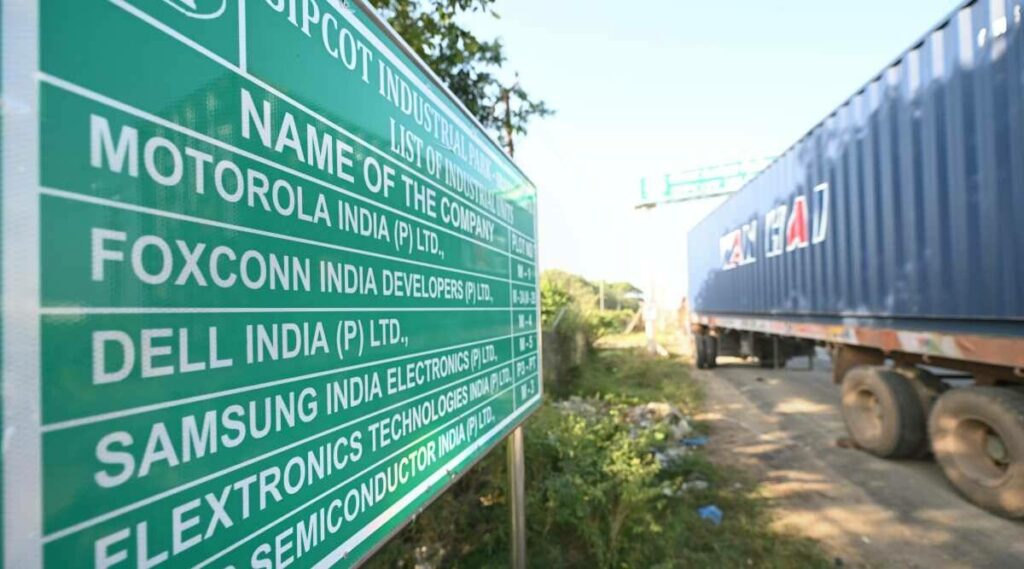Virendra Pandit
New Delhi: Like other import-dependent countries gradually shifting their options from China to other nations—even through trade wars, as the US—India is also recalibrating its supply chains after nearly 20 years and may announce new measures to curb Chinese imports in Budget 2023.
With the globalization of the world economy, geoeconomics has gradually replaced geopolitics in many areas. Leveraging imports and exports to boost or curtail ties, and manipulating financial levers have emerged as major weapons to replace traditional diplomacy to achieve ends without direct war. This is how the West and its allies are currently trying to bleed both Russia and China to contain their medieval expansionist objectives, which threaten to deglobalize the planet.
In this vein, India may announce fresh steps to curb select Chinese imports in the next financial year’s Budget through stiff tariff and non-tariff measures, including recalibration of customs duty on several items. The media reported on Friday that India may continue to import goods and raw materials from China but frustrate Beijing’s strategy to export or infiltrate finished goods into India directly or indirectly via a third country.
These measures are being considered against the backdrop of the 20-month-long standoff between the two countries’ armies in Ladakh and the recent clash in Arunachal Pradesh that has pushed India to strictly implement the agreements with China.
Many Indian companies also objected to the import of over 100 Chinese products, including solar cells, vinyl tiles, saccharin, aluminum foil, and pharma formations including ofloxacin, which the government is considering for action.
With the government’s Made-in-India campaign, some Chinese imports are already reducing. According to the data from the Union Commerce Ministry, India’s merchandise imports from China in October 2022 fell 9.73 percent to USD 7.85 billion compared to USD 8.7 billion in October 2021.
The Production-Linked Incentive (PLI) Scheme may also play a major role in reducing Chinese imports.
As part of a global strategy against China, the epicenter of Covid-19, even private companies are shifting their China-based factories to other countries or curtailing their dependence on China by opening new plants and finding alternative supply chains.
For example, Apple’s contract manufacturer, Taiwanese company Foxconn’s India subsidiary is fast-building a Chinese-style hotel complex on a 20-acre plot of land at Sriperumbudur, near Chennai, Tamil Nadu, to accommodate 60,000 employees next year. Apple is already enthused about its sales in India. At present, this iPhone manufacturing factory houses nearly 15,000 workers, mostly women. Clearly, the company is building an expanded facility in India to gradually relocate production from China.
Foxconn is ramping up its production capacity for Apple devices produced in India and will quadruple its Indian workforce in the next 2 years. It recently faced massive disruptions at the Zhengzhou plant, the world’s largest iPhone production facility, in China because of the Zero Covid policy, a fresh wave of Covid-19 infections, and widespread protests. The facility housed nearly 200,000 employees until some weeks ago, but over 20,000 were either retrenched or left on their own, depleting the workforce. Foxconn’s Sriperumbudur facilities produce Apple phones such as the iPhone 14.
At present, most of the world’s iPhones are manufactured in China, but India may replace China as the top producer of the devices by 2025. According to a JP Morgan report, Apple, which produces only 5 percent of its total iPhones in India, now plans to increase it to 25 percent by 2025, to diversify supply chains.
Foxconn also plans to invest up to USD 500 million in India for the production of chips/ semiconductors with Vedanta. It recently said its Singaporean subsidiary would invest in India.
The Taiwanese major recently signed an agreement with Gujarat to develop a USD 20-billion semiconductor and display fab unit, and pledged its technological knowledge to the operation, while Vedanta, a global mining behemoth, pledged to finance the project. The Gujarat Government will subsidize capital and electricity costs.
In September 2022, Apple started assembling iPhone 14 in India. In early December, Foxconn announced an infusion of USD 500 million into its India unit, mainly to boost the production capacity, the company said in a regulatory filing.
Tamil Nadu is fast becoming the iPhone manufacturing hub in India, with Foxconn and Pegatron already housing their factories there. Wistron manufactures Apple devices at its Hosur facility in Karnataka.

